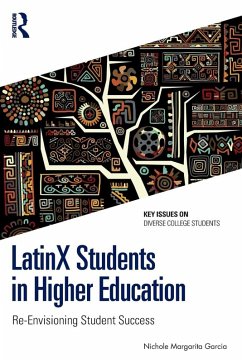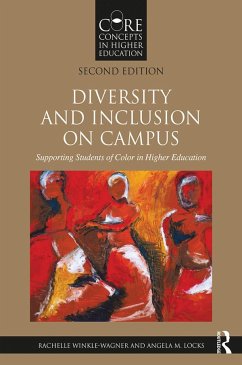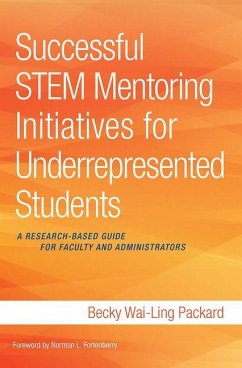
Academic Belonging in Higher Education
Fostering Student Connection, Competence, and Confidence
Herausgegeben: Rueda, Eréndira; Lowe Swift, Candice
Versandkostenfrei!
Versandfertig in 6-10 Tagen
34,99 €
inkl. MwSt.

PAYBACK Punkte
17 °P sammeln!
The concept of belonging has been increasingly understood as the missing piece in diversity, equity, and inclusion efforts in higher education. This book explores the need to recognize and account for institutional-level factors that shape academic belonging, thereby improving student experience and outcomes.Though recent scholarship has identified several factors that are associated with student belonging in academics, there is little research that addresses what faculty can do in concrete terms to promote belonging, particularly in the domains where they have the most influence. The 12 chapt...
The concept of belonging has been increasingly understood as the missing piece in diversity, equity, and inclusion efforts in higher education. This book explores the need to recognize and account for institutional-level factors that shape academic belonging, thereby improving student experience and outcomes.
Though recent scholarship has identified several factors that are associated with student belonging in academics, there is little research that addresses what faculty can do in concrete terms to promote belonging, particularly in the domains where they have the most influence. The 12 chapters in this volume introduce readers to an array of collaborative, cutting-edge efforts to develop pedagogies, programs, strategies, and environments that help students develop academic belonging; that is, a sense of connection, competence, and confidence in academic domains.
This book is written for higher education faculty, administrators, and researchers who wish to enhance their students' sense of academic belonging by taking informed, practical measures to make them feel valued and supported.
Though recent scholarship has identified several factors that are associated with student belonging in academics, there is little research that addresses what faculty can do in concrete terms to promote belonging, particularly in the domains where they have the most influence. The 12 chapters in this volume introduce readers to an array of collaborative, cutting-edge efforts to develop pedagogies, programs, strategies, and environments that help students develop academic belonging; that is, a sense of connection, competence, and confidence in academic domains.
This book is written for higher education faculty, administrators, and researchers who wish to enhance their students' sense of academic belonging by taking informed, practical measures to make them feel valued and supported.














